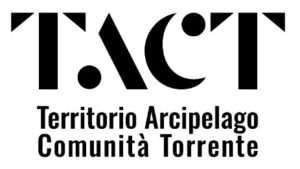With TACT, the project promoted by the General Directorate for Contemporary Creativity of the Ministry of Culture winner of the public notice Creative Living Lab – 3rd edition, Fondazione Pistoletto, Better Places and cheFare aim at highlighting the importance of building a healthy relationship between man and the environment in the local community, starting with the involvement of the younger generations, and at broadening the perspective of protecting the environmental heritage, in order to achieve a concrete integration and enhancement of biodiversity. In agreement with the main local stakeholders, and as part of a territorial programmatic proposal, the project finds a real application through processes of regeneration and recovery of quality spaces on the peripheral axis of the river Cervo. In fact, it wants to start an action of community regeneration through the intergenerational involvement of the residents living in local urban and peripheral areas of the Biellese territory. With this in mind, the three project promoters intend to address the issue of environmental fragility and its consequences with the active involvement of the communities inhabiting the Cervo valley and the entire provincial territory, in order to draw attention to the importance of caring for their landscape and natural heritage, to create a ‘bridge’ that opens the communications between urban and marginal areas and to initiate a process of public activation on sustainability issues, starting from the theme of water, with reference to the 17 SDG’s of the UN 2030 Agenda.
Thanks to the essential contribution of MIBAC, initiatives will be carried out in the urban area of Biella and along the axis of the river Cervo, with the following objectives: to offer a programme of activities on the themes of ecological sustainability, to initiate collective reflections on the dynamics between man and the environment, to trigger processes of active participation in public life, to develop resilience skills and encourage the recovery of a sense of belonging to the community, to facilitate the emergence of collaborative networks through creativity and territorial design, and to involve the citizens in experiential practices in liminal spaces that are often in contrast between the power of the river and anthropic projects. As part of the initiatives promoted by the project, from March onwards Biella’s citizens will be offered moments of discussion open to the public in the form of meetings, thematic conferences and educational workshops. The activities will take place in the regenerated spaces of Fondazione Pistoletto, conceived as urban centres and designed to host participatory planning initiatives that can generate innovative ideas with a territorial impact. The first public appointment of the TACT project will be on the weekend of 26-27 March with the event on the rights of water bodies part of the 2022 edition of Fluviale, the public programme run by Better Places APS that is an integral part of TACT.
As mentioned, TACT will deal with the themes of environmental fragility and sustainability in general, with a particular focus on the following areas: water, education, energy and food. The programme of events includes a series of thematic public conferences: on 12 April on the theme of water, in May on education and food, in June on energy. The cultural proposal curated by Fondazione Pistoletto, Better Places and cheFare will also be supported by an important collaboration with the Horizon project “S+T+ARTS4WATER” on the theme of water. National businesses particularly sensitive to the issues of sustainability and energy saving will also be involved in the discussions. The conferences and thematic workshops will be conducted by cultural mediatorswith the contribution of speakers and guests (not necessarily from Biella) who will involve the citizens in processes of analysis and debate on possible scenarios and future challenges towards sustainable prosperity in the Biella area. The project is promoted by Fondazione Pistoletto, Better Places and Che Fare, with the collaboration of Fondazione BIellezza and Biella Città Creativa Unesco. The activities are being carried out thanks to the cooperation of the youth associations Leo Club Biella, BI young, La Fenice, Biella Siamo Noi, Fridays For Future, Biella’s Province Student Council.
The collaboration between Fondazione Pistoletto, Better Places and cheFare with the Municipality of Biella and with the local social, entrepreneurial and associative fabric will therefore guarantee the project has a wide participation and a leverage effect, in virtue of the other initiatives promoted by the association Biella Città Creativa Unesco and by Fondazione Biellezza. The project for the regeneration of the Biella area – coordinated by an expert in urban regeneration and a scientific expert in agronomy and landscape architecture and by a plurality of subjects (with multidisciplinary skills) who will be the contact persons for the individual actions – will continue after its completion, as will the collaboration between the three proposing subjects. The in-depth study on the theme of water will also create engagement among citizens, who will want to follow up on their commitment to the area by making concrete proposals to the three project promoters.
The planning will develop in work tables (work sites), which will address other urgent issues for the Biella region: renewable energy, sustainable textile and fashion industries, slow tourism, farm-to-table food, digital ecology, with constant reference to the 17 SDG’s. The work tables apply the principle of trinamics, whereby deliberations are reached by comparing different visions, according to the method of synthesis between thesis and antithesis. “Freedom of expression and public debate,” reads the TACT presentation, “are absolutely necessary for maintaining healthy balances within a civil society and for building a real community. The actions envisaged by the project are designed so that citizens can find solutions together, debate, become passionate and understand the importance of teamwork, dialectics and demopratic political commitment. The method is a useful tool for defining the main areas of action, in connection with territorial needs”.



